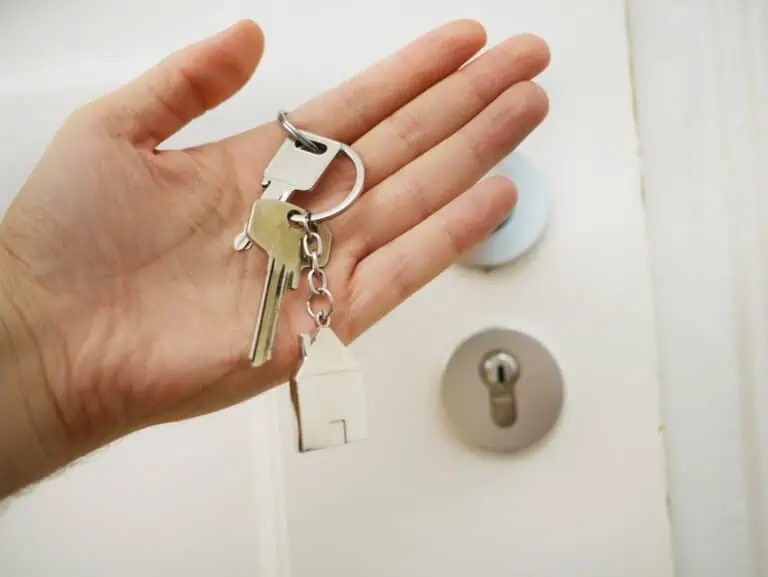How to Buy a House Without a Realtor
Original found at SoFi and has been republished with permission
Most people you know who have bought a home have probably done so with the help of a Realtor® or real estate agent. Realtors, by the way, are real estate agents who belong to the National Association of Realtors, requiring them to adhere to a certain code of ethics.
But considering the commissions that agents charge, you might be asking yourself, “Do I need a Realtor or real estate agent to buy a house?” The answer is no—you aren’t required to go through a professional to complete the transaction.
That said, it’s not a decision to make lightly. Buying a house is likely the biggest investment you’ll ever make. Consider that the median sales price of a new home exceeded $374,000 in mid-2021, according to the US Census Bureau and the Department of Housing and Urban Development.
So if you make a mistake in the homebuying process, there’s a lot of money and possibly other risks on the line.
However, if you do want to buy a home on your own, knowledge is key.
What Do Real Estate Agents Do?
Before you decide whether or not to forgo a real estate agent, it can be a good idea to brush up on what they actually do.
Real estate agents are licensed to help clients buy and sell real estate. Realtors, as mentioned, have to follow an ethics code, which includes putting their clients’ interests first.
Unlike many other professionals, most agents don’t bill by the hour or job; instead, they only get paid if you actually buy or sell the property.
Among the work that real estate agents do for buyers is:
• Look for property listings that fit their clients’ goals
• Check out listings in person
• Write offers and counteroffers
• Be present for inspections
• Help negotiate with the seller
• Troubleshoot any roadblocks that come up
Buying a House Without a Realtor
If you want to join the few buyers who forge ahead sans an agent—88% of buyers recently purchased their home through a real estate agent or broker—you’ll want to prepare yourself to take on the tasks agents normally do.
Especially if you’re green, it’s essential to learn about the home-buying process, which includes getting preapproved for a mortgage loan.
A preapproval letter will let you know how much house you can afford and reassure sellers that you’re serious about buying. To get preapproved for a mortgage, the lender will consider your income, your debt-to-income ratio, credit scores, and ability to make a down payment and meet closing costs.
Once you zero in on neighborhoods that meet your criteria, then it’s a good idea to learn the price of recent sales.
Once you find a home you’re interested in, it’s recommended that you hire a home inspector.
Ask for a seller’s disclosure, a document that can contain information about repairs and upgrades the seller did on the home as well as problems they’re aware of. You can ask them about any structural problems; condition of the HVAC, plumbing, and electrical systems; mold and mildew; termite damage; the presence of lead paint, radon, and asbestos; and so forth.
If you’re still interested in buying a particular home, it’s time to make an offer. This will include the amount you’re offering, what you’d like to stay in the home (such as appliances), and closing dates. Including an inspection contingency in the offer means you can cancel the contract if something goes wrong without losing your deposit.
It’s often a good idea to hire a real estate lawyer to prepare documents and look over your contract before you sign it.
Sellers, meanwhile, will likely include a loan contingency. During this part of the process, there may be counteroffers and negotiations between you and the seller, about the price of the home or repairs you might want the seller to make. Keep copies of all communications as negotiations progress.
At the closing of the loan, you’ll need to sign documents and handle other aspects that a Realtor might typically help you with.
It is typically recommended that the buyer obtain owner’s title insurance, which protects the buyer against title defects such as mechanic’s liens and other after-closing problems. It usually costs about $1,000, depending upon the state.
Leveraging Technology
An increasing number of technology startups can also aid you in your home search without a real estate agent.
Opendoor lets buyers make an offer and back it with Opendoor cash, waiving appraisal and loan contingencies.
You can also use Google Maps, social media, and more to find a house out of state.
Door allows you to buy a home with licensed agents who operate on salary rather than on commission. Houzeo helps unrepresented buyers connect with sellers who are also not working with an agent.
Navigating home purchases online without an agent is likely to become increasingly popular, considering that millennials—who are more comfortable with using technology and making expensive purchases online—make up the largest share of homebuyers.
Pros of Buying a House Without a Realtor
There could be upsides to going it alone. Here are a few.
1. Commission Savings
The main appeal of taking the DIY approach to a home purchase is keeping costs down. In a U.S. home sale, the seller’s and buyer’s agents usually split a commission equal to about 5% of the property price.
In many markets, that can add up. For example, in San Francisco, where the median home price was $1.5 million in 2021, that’s a commission of $75,000 at 5%. The seller is typically responsible for this fee, paid at closing from sale proceeds, unless you agree with the seller and seller’s agent on an alternative arrangement.
Even though you’re not directly responsible for this expense, sellers may increase the selling price of the home in order to cover the cost of commission. So keeping agents out of the mix could reduce your overall costs.
2. Info Galore
Buyers now have access to some of the same information that Realtors do. Historically, agents had lots of insider tidbits about listings.
Now, you can instantly find out about new properties and neighborhood demographics with the click of a button. That means taking the buying process into one’s own hands is considered by some as increasingly feasible.
And since no one knows what you are looking for as well as you do, the search process can sometimes be more efficient.
3. A Familiar Deal
One situation where it might make sense to eschew an agent is if a friend or relative is selling you the property.
Although risks may still be involved, the transaction may be more straightforward if you know the seller. You still want to make sure you and the seller are clear on the price, closing date, what furniture or fixtures will be included, contingencies, and more.
It is typically recommended that a buyer review and approve home inspections and obtain full loan approval in writing before lifting certain contingencies.
If it is known that a contingency date cannot be met or another material change takes place after the contract is written, such as a seller credit for closing costs, a contract addendum executed by all parties outlining the change is usually obtained.
Cons of Buying Without a Realtor
Not hiring a real estate agent or Realtor to help you with your home search comes with disadvantages and risks.
1. All the Work
You have to be constantly on the ball, keeping a lookout for properties and arranging a time with sellers to visit them.
The process can be exhausting and time consuming and, if you aren’t attentive, you could let great homes slip by or make the hunt longer than it might have been with a real estate agent.
2. All the Risk
You’ll be on the hook for all the details of the transaction. Without an agent, you’ll need to determine the correct bid price and terms, watch the contract contingency dates, and know the ins and outs of the purchase contract.
Agents are experienced in helping to point to hidden flaws in the property or transaction.
If you don’t have a real estate agent in your corner to help research the proper bid price, you may risk paying more than you need to on the home—which may work out to more money spent, even with the cost of commission.
3. Your Pool of Knowledge May Not Be That Deep
Agents have access to information that’s not necessarily online thanks to their connections with other real estate agents, inspectors, etc.
Then there’s the experience factor. Most agents operate under a seasoned broker who oversees and consults on various transactions.
It could take a lot of effort to figure out what a Realtor has learned through years on the job and ongoing education, and that learning curve may not be worth your time, especially if the buyer’s agent commission is covered by the seller with no apparent bump in the purchase price based on comparable listings.
The Takeaway
Do you need a Realtor or real estate agent to buy a house? No, you don’t. And it may be tempting to skip the real estate broker’s commission. Just realize all of the work and risk involved in finding a home, making an offer, handling contingencies, and closing the deal.
Whether you do or don’t use a real estate agent, if you’re not an all-cash buyer you’ll need to finance the purchase.
SoFi offers fixed-rate home loans and requires little down for qualified buyers.Check your rate on a SoFi mortgage in two minutes.Get Started
External Websites: The information and analysis provided through hyperlinks to third party websites, while believed to be accurate, cannot be guaranteed by SoFi. Links are provided for informational purposes and should not be viewed as an endorsement.
Third Party Brand Mentions: No brands or products mentioned are affiliated with SoFi, nor do they endorse or sponsor this article. Third party trademarks referenced herein are property of their respective owners.
SoFi Loan Products
SoFi loans are originated by SoFi Lending Corp. or an affiliate (dba SoFi), a lender licensed by the Department of Financial Protection and Innovation under the California Financing Law, license # 6054612; NMLS # 1121636 Opens A New Window.. For additional product-specific legal and licensing information, see SoFi.com/legal.
SoFi Home Loans
Terms, conditions, and state restrictions apply. SoFi Home Loans are not available in all states. See SoFi.com/eligibility for more information.
SOMG19009






